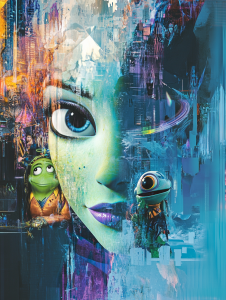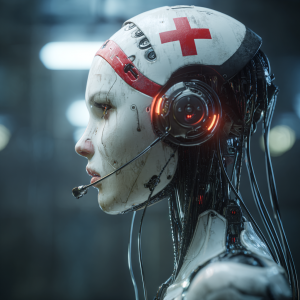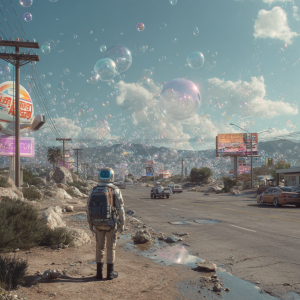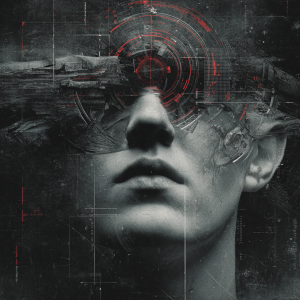Cue the opening credits: A galaxy of copyright law, Disney characters, and AI art generation. In June 2025, the entertainment empires of Disney and Universal Pictures decided they’d had enough of being the muses for an AI model named MidJourney. So, they marched into federal court, armed with a 110-page lawsuit and a battalion of copyright lawyers, accusing the San Francisco-based AI company of mass copyright infringement. Their complaint? That MidJourney, with the help of some clever algorithms and billions of scraped internet images, had become a digital bootleg artist cranking out Baby Yodas, Iron Men, and Spider-Men without a single licensing deal in sight.
This is not just another skirmish between artists and tech. It’s a battle for the soul of creativity in the age of artificial intelligence.
What Happened: The Mouse and the Minions Lawyer Up
Let’s start with the facts. MidJourney is a generative AI image platform that turns your text prompts into dazzling visuals. Want a steampunk version of Elsa? Type it in, and boom, there she is in brass goggles. The problem, say Disney and Universal, is that MidJourney didn’t just wake up one day with a knack for fan art. It learned by devouring millions of copyrighted images, many of them owned by, well, the plaintiffs.
According to the lawsuit filed in Los Angeles in June 2025, MidJourney trained its AI models by scraping content from across the web, including visual gold like movie stills, character art, and promotional material from Disney and Universal’s blockbuster franchises. Notably, they allege that MidJourney’s model can produce images that are uncannily similar to iconic characters: Shrek, Buzz Lightyear, Elsa, the Minions, and even the Marvel and Star Wars lineups. The studios provided side-by-side comparisons to prove their point, showing that you don’t need a mouse-shaped watermark to spot a Mickey knockoff.
The studios claim MidJourney refused cease-and-desist letters, made no attempt to license content, and continued improving its models in ways that made the alleged infringements even more accurate. MidJourney CEO David Holz, famously candid, once described the company’s dataset as “a big scrape of the internet.” This comment now reads less like transparency and more like a legal confession.
So, here we are: Disney and Universal suing MidJourney for direct and contributory copyright infringement, seeking both damages and a court order to stop the unlicensed generation of their characters. Think of it as Mickey Mouse and Darth Vader teaming up to sue a neural network. If that doesn’t sound like a 21st-century fairy tale, I don’t know what does.
Copyright Law Meets Code: The Legal Questions
Under U.S. law, copyright gives the creators of original works exclusive rights to use and adapt their content. Two key questions arise here:
- Is training an AI model on copyrighted images without permission a form of infringement?
- Are AI-generated outputs that resemble copyrighted characters illegal derivatives?
MidJourney will likely invoke fair use, a flexible U.S. doctrine that allows for certain unauthorized uses if they are transformative, non-commercial, limited, and don’t harm the market for the original work. But the studios argue that MidJourney’s use is anything but fair: it’s commercial (they made $300 million last year), it involves whole works (not snippets), and it threatens the very licensing market that fuels Hollywood’s bottom line.
And what about the outputs? U.S. copyright law doesn’t just protect exact copies. It also protects “derivative works”—images, sequels, or adaptations based on original characters. If a MidJourney user types in “Baby Yoda sipping a latte” and the AI generates something instantly recognizable, that’s potentially a copyright violation. Especially if the original Baby Yoda was part of the training data.
The studios argue that MidJourney isn’t some neutral paintbrush, but rather a vending machine for infringing content. The user presses the button (i.e., the prompt), and out pops a copyright violation. That makes MidJourney responsible not only for creating the tool but for facilitating and profiting from infringement.
This is a new frontier, but it echoes old battles—think Napster and YouTube, which also tried to argue they were just platforms, not pirates. The courts didn’t buy it then. Will they buy it now?
The EU and German Perspective: More Order, Less Fair Use
Now let’s take a stroll across the Atlantic, where copyright law tends to wear a tighter suit. In Europe (and especially Germany), there’s no fair use doctrine. Instead, there are narrow, specific exceptions, and none of them give you a free pass to train a commercial AI on copyrighted data.
However, the EU’s 2019 DSM Directive does provide a couple of options. Article 3 allows research institutions to do text and data mining (TDM) for scientific purposes. Article 4 allows commercial TDM, but here’s the twist: rights holders can opt out, and if they do, you’re back to square one.
Disney and Universal would almost certainly have opted out. And in Germany, even a simple robots.txt file or a no-scraping clause in website terms can count as a valid opt-out. So MidJourney’s defense that the data was “publicly available” doesn’t hold much water here.
Furthermore, EU law protects not just the original images, but also their “Bearbeitungen”—derivative works. And while the U.S. Copyright Office has said AI-generated works can’t be copyrighted, the EU has made no such ruling. The legal lens in Europe is more protectionist, especially when it comes to cultural products. In Germany, unauthorized reuse of visual works can quickly become a moral rights issue. And let’s be honest—if you mess with Goethe, Wagner, or Walt Disney, the courts are unlikely to cheer you on.
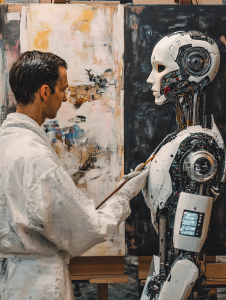
Why This Case Is a Big Deal (Even if You’re Not a Copyright Nerd)
This lawsuit isn’t just a clash of titans. It’s a test case for the entire AI industry, which has largely operated under a Silicon Valley motto of „move fast and ingest things.“ If Disney and Universal win, the age of free-range data scraping could be over. Future AI models might have to be trained on licensed content only, meaning slower development and higher costs—but also clearer legal ground.
For artists and creatives, this is a lifeline. Many fear AI is hoovering up their work and spitting out clones without credit or compensation. This lawsuit could force AI firms to build ethical frameworks, develop licensing systems, or even share revenues with creators.
For tech firms, it’s a wake-up call. They might have to start thinking less like pirates and more like publishers. Companies like OpenAI and Stability AI are already signing licensing deals. This lawsuit pushes that trend into overdrive.
And for lawmakers? It’s a clear sign that copyright law needs a 2025 update. The last big tech vs. copyright drama gave us the DMCA. This one might give us a Copyright Act for the AI Age.

Final Thoughts:
Popcorn, Prompts, and Precedents…
The Disney/Universal vs. MidJourney lawsuit is not just about Elsa in steampunk goggles. It’s about the future of creativity, the rules of digital engagement, and whether AI is a tool for artists or a thief in a digital costume.
MidJourney’s defenders say the model is innovative, expressive, and even artistic. But innovation doesn’t get a free pass when it piggybacks on decades of someone else’s creative labor.
Whether you’re team Mickey or team Matrix, this case is worth following. It’s likely to shape how we balance human imagination and machine learning for years to come.
One thing is clear: In the battle of Disney vs. Data, the credits haven’t rolled yet. But when they do, the legal world might never look the same.
Stay curious, stay informed, and let´s keep exploring the fascinating world of AI together.
This post was written with the help of different AI tools.
Under U.S. law, copying someone’s copyrighted work (like downloading images to create a dataset) usually requires permission. MidJourney admittedly copied millions of images from the web into its training database. Disney and Universal argue this was outright “piracy”, since it involved making “innumerable” unauthorized copies of their images on MidJourney’s servers. But MidJourney – like others in the AI industry – will likely invoke the doctrine of fair use as a defense. Fair use (17 U.S.C. §107) allows certain unlicensed use of copyrighted material for purposes such as commentary, research, or transformative creation, weighing four statutory factors.
MidJourney could argue that scraping images to train an AI is a transformative use – that is, the AI’s training process turns the original images into something fundamentally new: an algorithmic model that doesn’t just display the images, but uses them to generate original art. AI companies have analogized this to how a human artist might study existing artworks to inspire new creations. In other words, they claim the purpose of the copying is transformative (training an AI, not simply republishing the images) and therefore it should be considered fair use. Indeed, tech companies often point out that courts have allowed certain mass-copying for transformative purposes in the past – for example, Google’s project of scanning millions of books to create a searchable index was deemed a fair use, as was Google’s creation of thumbnail image search results in the Perfect 10 case. These cases held that using copyrighted works in a new way (like enabling search functionality) can be fair use, especially if it doesn’t substitute for the original market.
However, fair use is a fact-specific inquiry, and not all transformations are created equal. U.S. courts examine four factors: (1) the purpose and character of the use (is it transformative? commercial? educational?); (2) the nature of the original work (published or not, creative or factual?); (3) the amount and substantiality of the portion used; and (4) the effect on the potential market for the original work. Here, MidJourney’s use was highly commercial – the company reportedly made $300 million in revenue last year from paid subscriptions to its AI service. That tilts factor one against fair use, though a commercial use can still be fair if it’s transformative enough (the U.S. Supreme Court’s famous Campbell v. Acuff-Rose case in 1994 upheld a commercial music parody as fair use). Factor two likely favors the studios, since their images (movie stills, character art) are highly creative works at the core of copyright. Factor three is tricky: MidJourney copied millions of entire images wholesale – not a tiny excerpt – which is usually frowned upon unless necessary for the purpose. (The AI companies would argue they needed to ingest whole images for the algorithm to learn visual patterns). Factor four – market effect – could be decisive: Disney and Universal claim MidJourney’s unlicensed copies “threaten to upend the bedrock incentives of U.S. copyright law” by undermining the market for their characters. If anyone can generate a perfect Mickey Mouse or Marvel superhero image with AI, why license the real thing? The studios fear the AI could become a substitute for authorized artwork, merchandise, or even animation involving their characters, eroding their licensing revenue and creative control.

